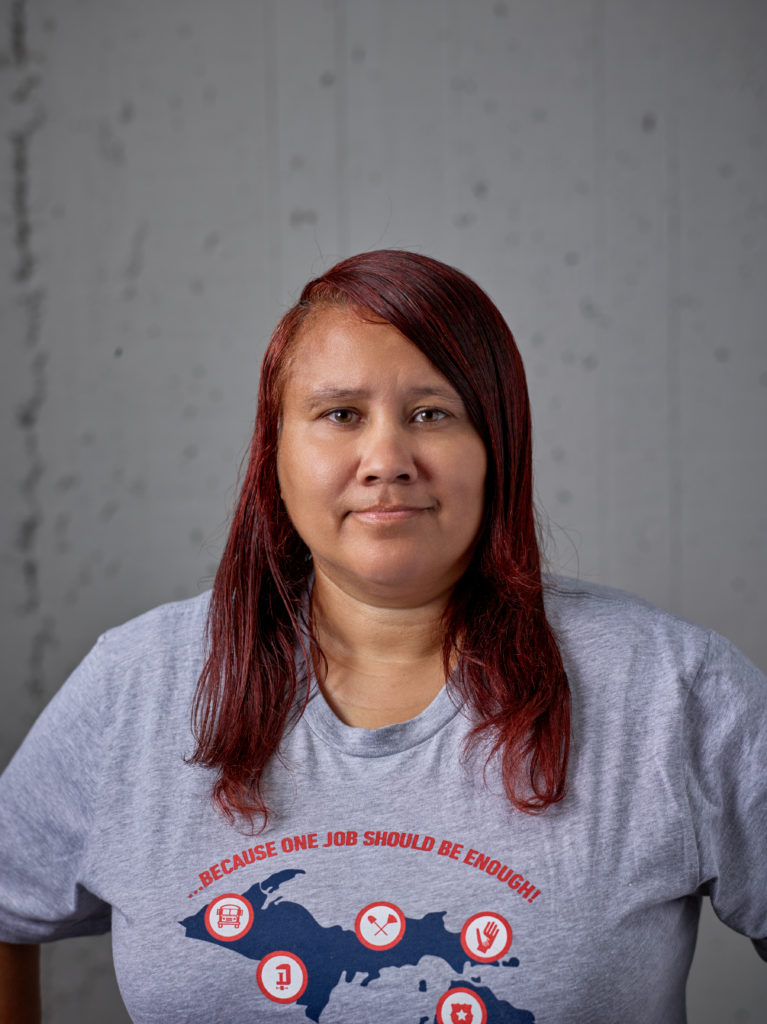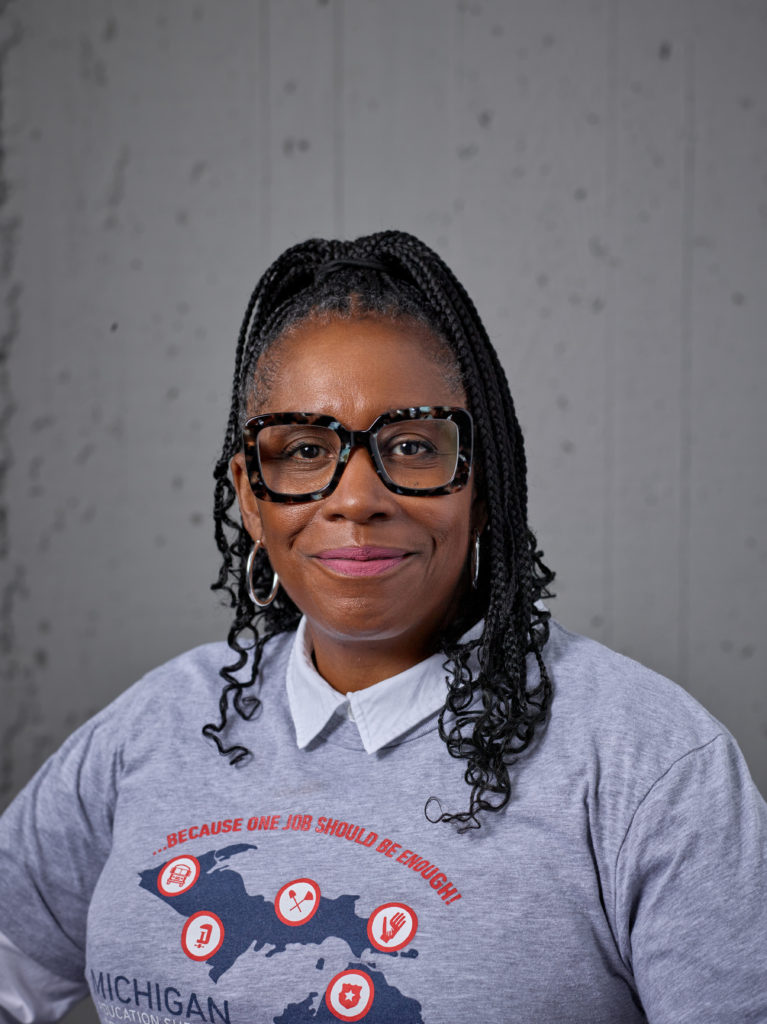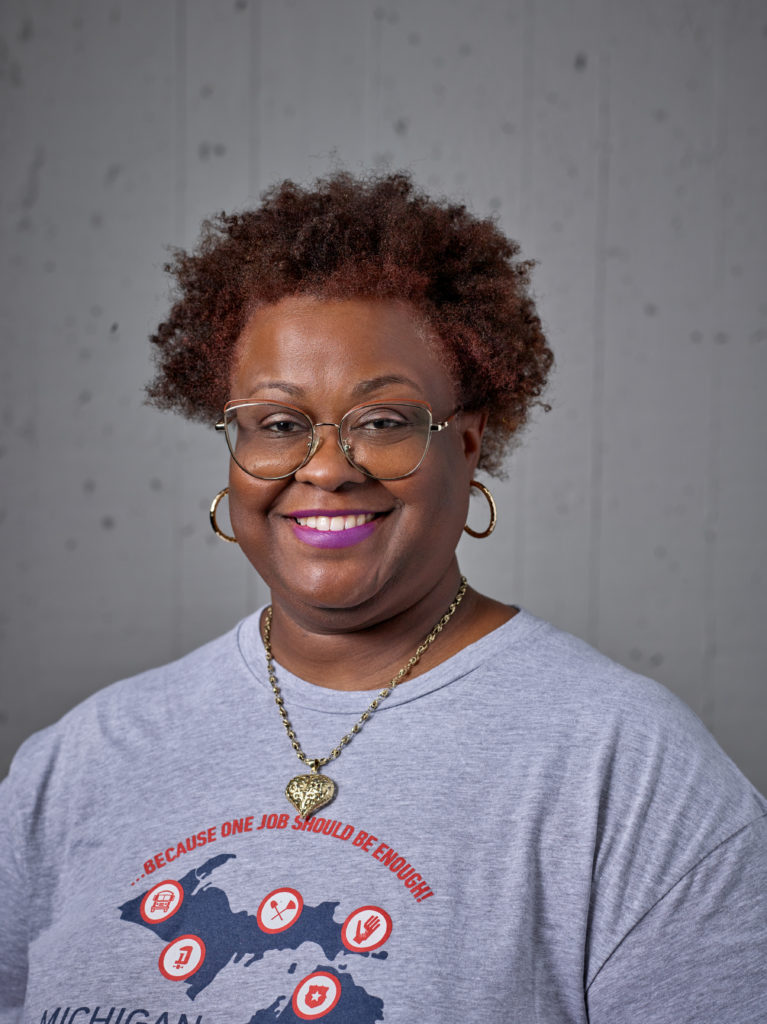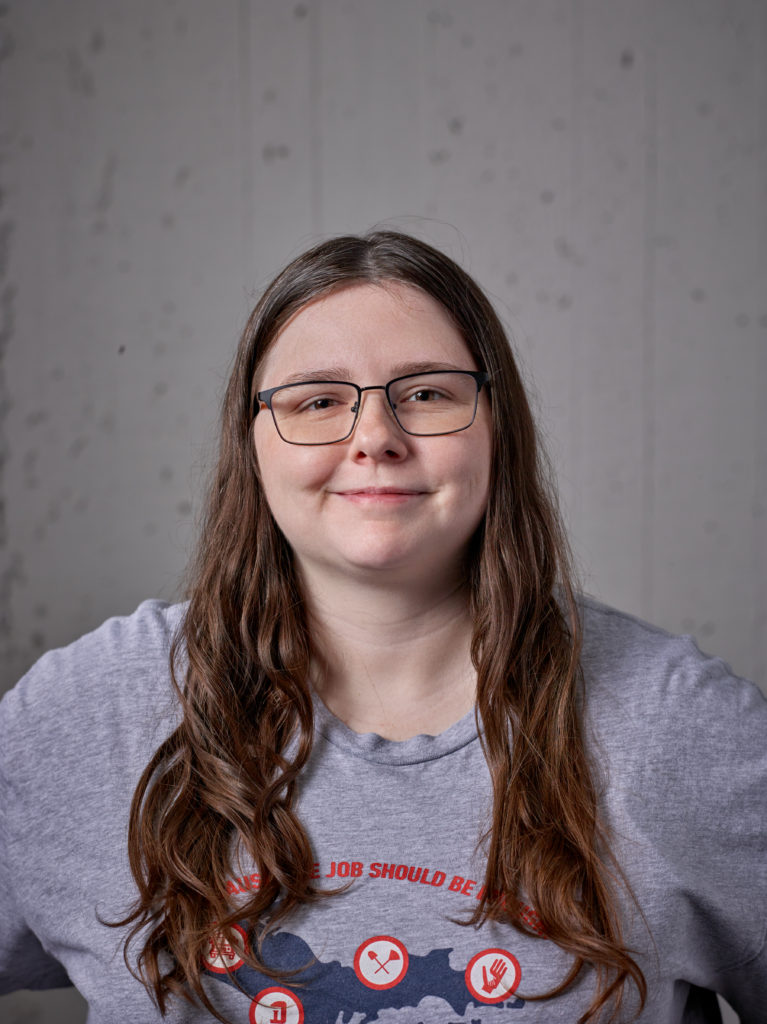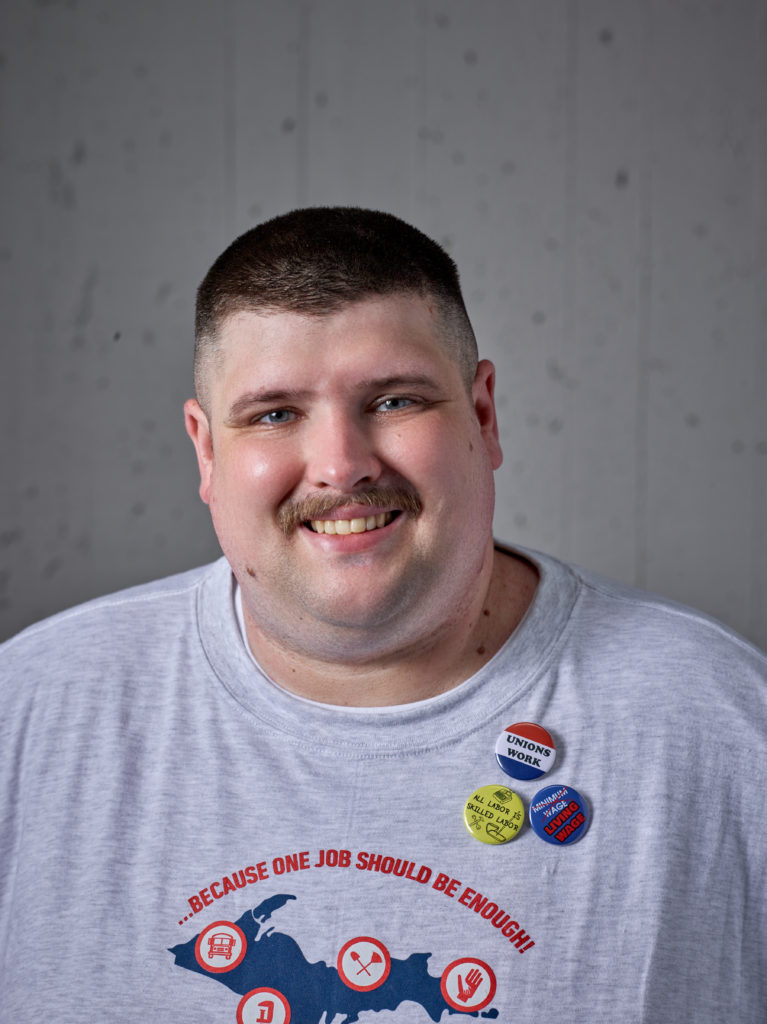Teacher associate: Ensuring educators’ safety
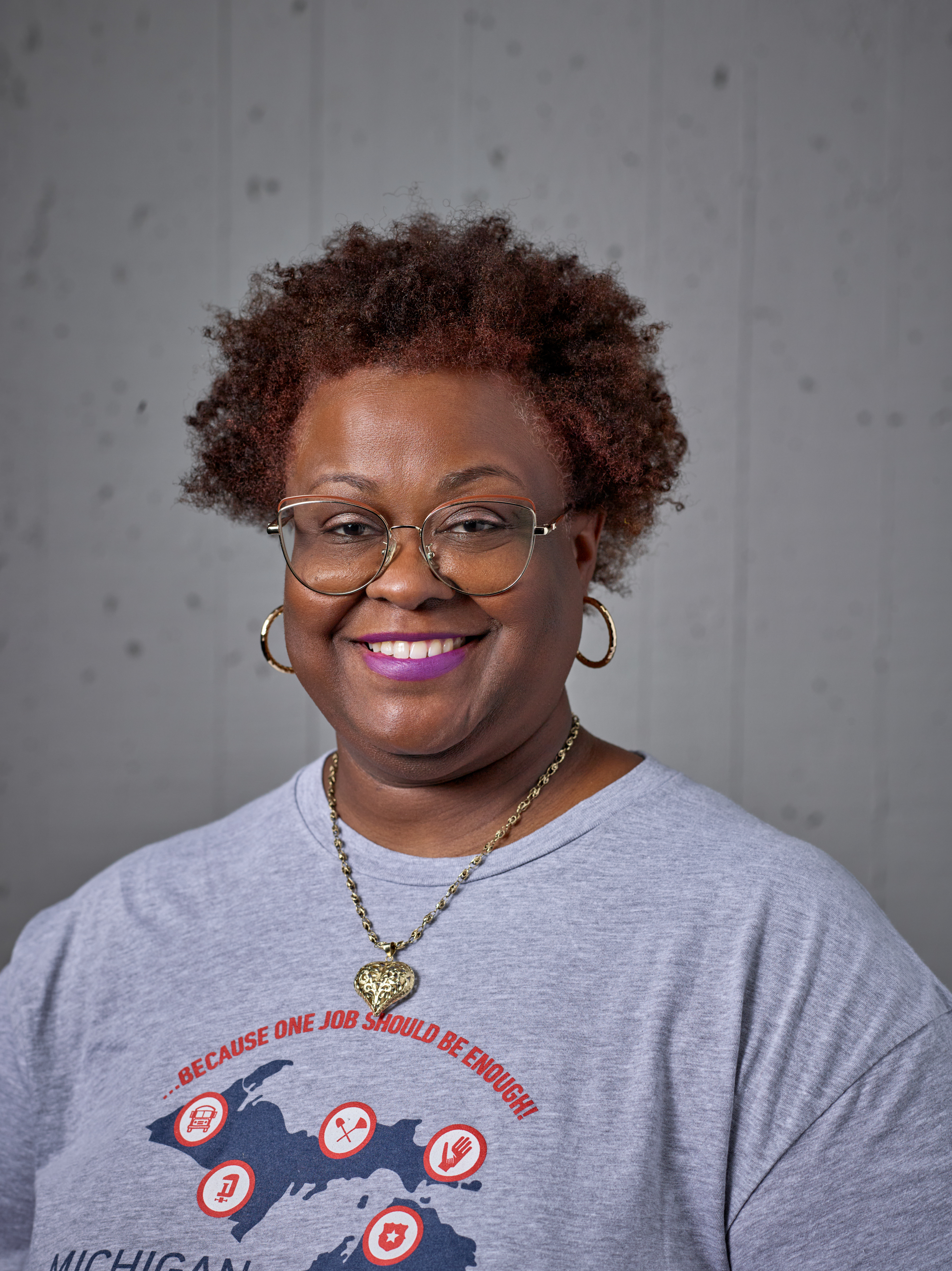
MEA member Katerina Tyner suffered more than physical injury after an emotionally dysregulated preschool student threw an object that fractured her ankle last May. “I didn’t even get to say goodbye to those students after being there for them every day,” she said.
Unable to drive a car or climb steps, Tyner had to file a workers’ compensation claim and take a leave for the remainder of the school year from Van Buren Public Schools where she works as a teacher associate.
She couldn’t undertake second and third jobs as a technical consultant she had planned for summer, so her family of five missed income needed to sustain them during the dry period when school paychecks stop. “This summer I had no money coming in,” she said.
Perhaps the most emotionally painful effect was realizing her teenage son had stopped talking about attending a school trip to Peru. “Kids know when things are not where they should be,” she said, pausing and choking up mid-sentence.
“He didn’t want to ask because how would we pay for it? So he just put it in his mind that he didn’t want to go.”
The incident brought home the need for school safety resources, training, and protections and motivated Tyner to become a captain in the ESP Bill of Rights campaign. “No one goes to work to be hurt,” she said.
A longtime civic volunteer and youth pastor in her church, Tyner relied on her husband and extended support system to survive the time off. But the experience sharpened her understanding of the struggles faced by many hourly workers.
“A lot of our staff members are sneaking boxes into their cars from the food pantry at a church across the street from our schools. We qualify for food assistance. It’s not right.”
Tyner holds a bachelor of science degree in Business Administration/Management Information Systems from Central State University, a historically Black college in Ohio. After working in the tech industry, which she found personally unsatisfying, she transitioned to education.
She worked as a substitute teacher and paraeducator while completing teacher certification and student teaching through Eastern Michigan University. She’s been a preschool para for six years and is working toward a Child Development Associate certificate to apply as lead teacher.
Though preK teachers make less than K-12, Tyner feels called to it. Growing up in Detroit, she struggled early in school but graduated with honors thanks to supportive parents and educators. She loves showing youngsters many routes to answers and teaching them to read and love books.
“When these babies come into my classroom, I’m giving them the same care that I would give my own children, which is everything.”
Related overview: The Michigan ESP Bill of Rights: an engine for advocacy
Learn more about the six elements of the Michigan Bill of Rights campaign through the stories of our featured captains:
Thriving Wages
“It’s about a better future for my kids.” — Shona Espinoza, middle school paraeducator
Full Benefits
“These are essential elements that people need to live a dignified life.” — Robin Moore, college circulation specialist
Workplace Safety
“No one goes to work to be hurt.” — Katerina Tyner, Preschool teacher associate
Secure Retirement
“Employees want something they can build for the future.”— Laken London, university accounting clerk
Job Advancement
“We all help provide education to students.” — Carol Urban, junior high paraeducator
Job Security
“I’m trying to make the things that I believe in come true.” — Dylan Baade, university custodian


